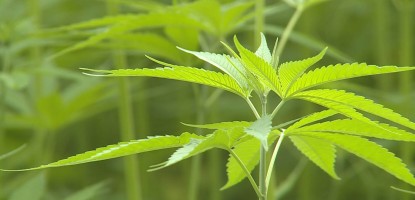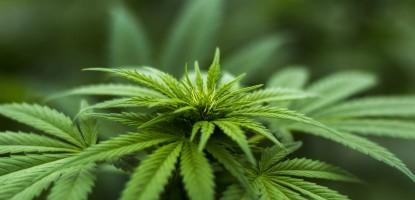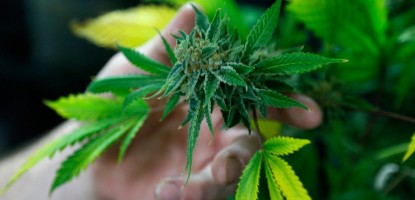Hemp Plastic - A Biodegradable Approach

Plastic is flexible and can be deformed into different shapes without breaking, making it one of the world's most adaptable materials used in different industries.
However, plastic is not biodegradable or decomposable, meaning it does not go away; rather, it accumulates in the natural environment and landfills. It has been reported that only about 9 percent of the total plastics in the world can be recycled, while the rest pile up in the environment.
These petroleum-based products have a devastating effect on land, water, and wildlife. Transitioning away from plastics to other environmentally-friendly bio-based plastics has soon become a necessity. Hemp plastic has gained much attention in recent years because of its 100 percent plant-based and bio-degradable, a suitable alternative to synthetic plastics.
Why Hemp Plastics?
Hemp plastic is a biodegradably-derived material made from the fiber and oil of the cannabis plant. It has several pros over conventional plastics, thereby helping to protect the environment.
Recent innovations have opened the door to a new generation of sustainable plastics, which do not depend on petrol. Bioplastics are renewable and usually made from agricultural products.
While plastics like Teflon and PET do not break down in landfills, hemp plastic is biodegradable and decomposes without polluting the environment. The hemp plastic industry also provides an additional revenue stream to farmers. So, hemp is the future of sustainable plastics.
How is Hemp Plastic Produced?
The production of hemp plastic is straightforward compared to synthetic plastic. The hemp biomass is broken into cellulose and soaked in acid to break it down further and prevent it from converting to simple organic sugars.
It is soaked in water for a few minutes to remove the acid. The hemp cellulose is heat treated to create different types of hemp plastics.
Injection molding is another method for forming hemp plastic. The process involves infusing raw materials through a screw-type plunger or ram into a mold. The plastic is then solidified inside the mold. The process is also eco-friendly because hemp does not generate carbon dioxide.
Why is Hemp Plastic a Suitable Alternative?
Hemp plastic is cheaper than conventional plastics.
Hemp plastic is an environmentally friendly alternative to carbon-based plastic. This type of plastic is made from hemp plants, which are generally biodegradable and recyclable.
Hemp plastic is cheaper to produce than conventional plastics. It is more durable and stronger and requires much less energy to manufacture than its counterpart.
Hemp fibers are a renewable, green option that's cheaper than petroleum.
Hemp plastic is environmentally friendly.
Plastics are produced from gas, coal, or crude oil, and their production emits chemicals into the atmosphere. According to reports, almost half of all plastic products are discarded after a single use. Furthermore, products like plastic bags and straws choke or starve marine life, while microplastics can damage the internal organs of the animals. This can also affect humans because we eat fish and other animals affected by microplastics.
Unlike plastics that never go away, hemp decomposes (reabsorbed into the environment) without putting a strain on the environment.
In addition, hemp composites are highly absorbent. During the drying process, the constituent fibers shrink. This cyclic absorption causes debonding cracks, which allow even more water to penetrate. This cyclic water uptake also promotes the growth of colonial fungi, speeding up the degradation of the hemp composite.
Hemp plastic is free of toxic chemicals.
Hemp plastic is a great alternative to conventional plastic. This material is 100% biodegradable and renewable and is 100% free of toxic chemicals. Hemp plastic is non-toxic, making it safe for human contact and the environment. In addition, hemp plastic decomposes completely within three to six months. This makes hemp plastic an excellent choice for packaging and other products that contain liquid.
Another benefit of hemp plastic is that it decomposes rapidly, reducing the need for water treatment and pollution. Unlike nonbiodegradable plastic, hemp plastic has excellent UV, thermal and dimensional stability, making it the ideal choice for products that are frequently exposed to sunlight and heat. Hemp plastic is also two to three times stronger than polypropylene. Plastic derived from fossil fuels is very harmful to wildlife and can pollute bodies of water.
Hemp plastic is stronger
Compared to conventional fossil-fuel-based plastics, hemp plastic is 3.4 times stronger and stiffer. As a result, it is more durable and cannot easily break.
It won't warp or bend and will not wear out screws, molds, or glass fibers. Moreover, hemp plastic poses no health or safety risks. As such, it is becoming a more popular choice for plastics. Hemp plastic can be molded into various shapes, including bags, bottles, and containers.
Hemp plastic is also heat-resistant, making it a good choice for food packaging and kitchen use. While its use is still in its early stages, hemp plastic is a viable alternative to conventional plastic.
Hemp plastic is versatile.
The plant is also renewable and can be used to make various products. In the past, hemp was used to make rope, cloth, and industrial building materials. Nowadays, many car manufacturers are exploring using natural products instead of petroleum-based plastics, including hemp-based cars.
It can also be used in the construction industry. Hemp plastic is sturdier than fiberglass, making it a great alternative to conventional plastic.
Conclusion
According to reports, the world has over 8.3 billion metric tons of plastic as of 2017. This has contributed to the environment and ocean pollution being witnessed today. The accumulation of plastic in the environment also threatens human health and life.
The need to adopt an environmentally friendly alternative is no longer a desire but a necessity. Hemp plastic has been shown to be a perfect solution to the plastic problem.
Hemp plastic offers great benefits compared to conventional plastics:
- Hemp plastic can be used in various industries, including construction, because of its sturdy nature.
- It helps to protect the environment and minimize pollution. This is because it is biodegradable and can be absorbed into the environment.
- It is cheaper to manufacture and produce
- It is non-toxic. Unlike regular plastic, hemp plastic does not contain any strange or toxic chemicals and does not require any toxic materials for manufacturing.
- It can save wildlife and water pollution. The synthetic plastic disintegrates into microplastic when exposed to sunlight and can threaten marine creatures and wildlife.
Above all, the hemp plant can also help combat global warming, which is increasingly becoming a world problem. It absorbs carbon emissions and purifies the air. Furthermore, it reduces soil contamination and enriches it too.
Although hemp plastic is still a novelty, its flexibility and low cost make it a viable alternative to conventional plastics.






Leave a Comment